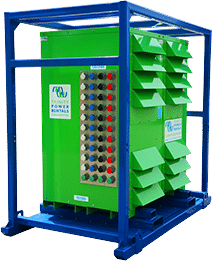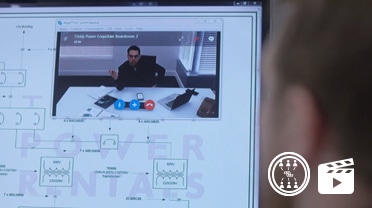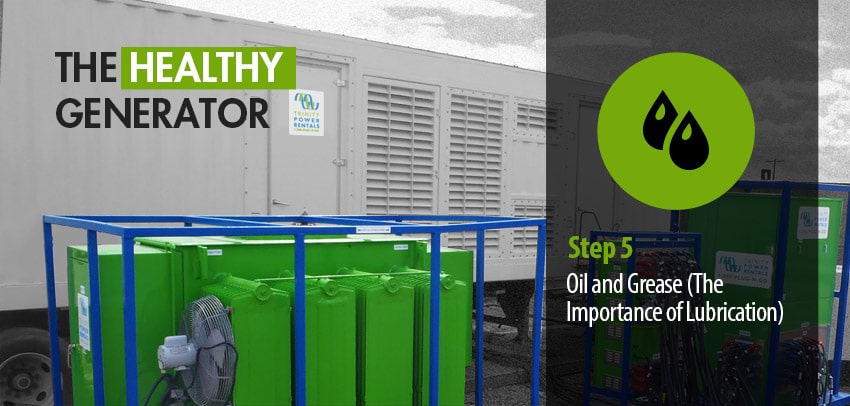- OUR APPROACH
-
COMMITTED TO YOUR SUCCESS
Our approach, developed over decades of experience, is fine-tuned to get the results you want.
We deliver concept-to-completion solutions, designed by temporary power specialists with access to the largest inventory of high-quality power generation and distribution equipment in North America.
-
- Equipment
-
RENTALS
From a wide range of diesel and natural gas generators to transformers, cable, light towers and more, our large rental fleet and extensive vendor network ensure we’ll have the temporary power equipment that your project requires — every time.

-
- Industries
-
INDUSTRIES WE SERVE
For nearly 20 years, we have been at work powering projects across Canada’s industrial sectors.
Select from this sampling of industries to learn how we can put our expertise to work for you.
VIEW ALL- Projects
- About
-
A PROUD HISTORY. A BRIGHT FUTURE.
From our inception in 1998, we have been building our team on a foundation of excellence. Our team members’ passion, expertise and commitment are what have allowed us to grow into a national company with projects across Canada.
Click on the links to learn more about our history, our team or our career opportunities.
- Blog
- Contact
-
Getting the Most from Your Vendors: A Procurement Expert Offers Her Top Tips
Nov 30, 2015
There are a myriad of ways that a business can lose money. From scope creep to exchange rates, some things are out of our control. But dealing with suppliers doesn’t have to be one of those things. In fact, having an effective vendor management strategy can help your business save big on time, money and reputation.

Tip #1 Know Who Your Key Suppliers Are
“You’re trying to use your time as best you can, and you’re wanting to be as effective as possible,” explains Galer. “So you’re going to have your top 10 suppliers of your critical items or critical services that you need, and you’re going to want to have those identified right away.”
Identifying key suppliers allows procurement specialists to focus their efforts when setting up reporting systems and ensuring that the end users of the product or service they are purchasing know what to communicate with them and how.
Tip #2: Take It Down a Level
After identifying key suppliers, Galer explains that the next step is to take it down a level and determine what the most important things are that your company gets from those suppliers. “The most important thing people are looking for is a result,” she stresses. “It’s not necessarily a product or a service.”
With this principle in mind, Galer suggests mapping out key performance indicators. She explains: “You’re going to want to define what those key performance indicators are, whether it’s quality, service, effectiveness.” These indicators might include knowing the damage claim rating of a shipping supplier, a manufacturer’s safety rating, or how a supplier is controlling their cost. “A purchasing professional will know in advance and expect a call from a supplier that a price is going to go up,” Galer emphasizes.
Once these key performance indicators have been prioritized, the top five or 10 can be used to measure the effectiveness of a given vendor relationship.
Tip #3: Share This Information With Your Suppliers
Vendors need to be aware of your company’s needs and priorities, in order to have the best chance of meeting those needs. “Nobody sets out to do a bad job, on purpose,” says Galer. “You want to be able to guide them in the path that will be the most useful for you. Especially if they’ve never dealt with you before.”
On top of that, Galer stresses the importance of record keeping, in whatever vendor management system your business uses. “The biggest thing is that you have a record -that you have everything in writing that you can feed back to the supplier.”
Galer recommends providing this feedback in a “friendly, non-confrontational way, and not when you’re in an emergency situation, so that you ultimately don’t have an emergency situation.”
Ultimately, for Galer, what it all boils down to is good relationships with vendors; vendors who will come to you first if a price is going to go up, or if a product you use heavily is no longer going to be available. “For planning, [suppliers] can be your best friend,” she says. “That’s the biggest safety and risk mitigation strategy you can ever have, is having really solid relationships with your suppliers.”
Related Articles
Subscribe for access to exclusive content
















